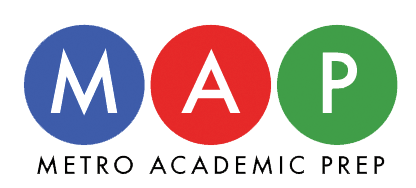I initially became aware of my dual identity in first grade when, for a class project, I asked my mom about the origin of my name. My name didn’t seem difficult to pronounce and I was surprised that other kids had trouble with it. My mom explained that, in Farsi, Sanaz is a type of rare flower and that, because the other kids were unfamiliar with this language, my name was foreign to them. Until then, I had assumed that everyone spoke both Farsi and English like I did. At this moment, I realized I was different, a rarity in a school with only two other Iranians. I took pride in my newly discovered identity and asked my mom to help with my project about the Persian New Year. I was ecstatic to find that my class shared my enthusiasm and that my Iranian background could exist in my American world.
On September 11, 2001, this ideal co-existence changed for me. I was furious with the hijackers who had taken the lives of innocent people, harming my favorite city—the city where I was born. President Bush’s statement that Iran was part of “the axis of evil” re-directed my anger at Iran for its malicious sponsorship of terrorism. Suddenly, my Iranian-American identity itself was in conflict.
The relationship between America and Iran has for my entire lifetime has been one of antagonism, made worse by the events of September 11. The U.S.-Iran relationship has always been important to me because of my personal investment in both countries. Straddling two continents has broadened my views of the world and of myself and has taught me that few issues are black-and-white. Within the past few years, this unique position has helped me develop an academic passion for international affairs.
This passion, as well as my love of history and foreign languages (Farsi, French, and Latin), has inspired me to investigate US-Iran relations as part of my school’s Honor Senior Focus Program. The enmity between the two countries is a reflection of a history of distrust since the overthrow of the Shah in 1979 and the Hostage Crisis in 1981. Iran views the U.S. as the “Great Satan” intent on destroying its regime, while the U.S. sees Iran as a looming threat in an already volatile region. These assumptions have influenced the political decisions of both nations and have slammed shut the doors of cooperation and discussion. In order to reopen these doors of dialogue, these assumptions must be set aside and both nations need to be realistic and honest. Iran will not just halt its uranium enrichment programs, despite (and perhaps to spite) international pressures, and the U.S. must consider this reality. President Ahmadinejad must similarly understand that resuming friendly relations with the U.S. would benefit his people who want friendly relations with the U.S. and the economy which needs U.S. support and aid. If he continues his nuclear program and persists with his infuriating verbal attacks on Israel, he will only create more enemies. The only way out of the current impasse is normalization of U.S.-Iran relations.
At the heart of the existing impasse is a deep cultural divide. For instance, religion and state are integrated in Iran far more than they are in the U.S. This plays a key role in the political maneuvering in Iran. I believe that ultimately it is necessary to find leaders on both sides who share Iranian and American values and who will thus be viewed legitimately by each nation. Otherwise, all negotiations will likely be perceived as each party merely vying for its own nation’s benefit. I hope that my continued studies will allow me to play such a key role in the future, while simultaneously allowing me to further appreciate my American home and Iranian roots.
